Music is born to be heard. A rare author does not dream that his creation will resonate with a wide audience. And it doesn’t matter if it’s a songwriter, beatmaker, or classical composer. Every time a musical idea illuminates the creator, he may not even guess that at the same moment there is someone who is destined to perceive it.
Creating music is always an amazing journey that completely absorbs the attention of a musician, and as it often happens, it’s difficult for the author to switch to less creative, but no less important processes related to marketing, promotion, and music distribution.
This, and the lack of knowledge about what to do next, is the reason why many great works remain in the shadows, and artists never turn their talent into a profitable business. It’s good when there is a professional next to the creator who will guide him or her through this difficult path to the audience, but what if there is no such person nearby, and you have to figure everything out by yourself? What if you don’t know where to start and your knowledge of marketing and digital music distribution is limited to the words “Spotify” and “DistroKid”?
We will try to help you with the answers in this article. We will talk in detail about music distribution in general, consider existing music distribution services, and also give some recommendations on which music distribution companies and why you should pay attention to.
“Old school” business
 In recent years, the realities and rules of the music distribution business have changed dramatically. It can be compared to the switch from an old cellphone to an iPhone. Not so long ago, after recording your demo, you had to spend your own money printing a limited edition of CDs, browsing through the address book, and start reaching the record labels, sending demos by mail, calling, faxing, etc. You hoped that one day your CD, among hundreds of others, will appear in the hands of an intermediary, and he will give it at least 15 seconds of his time.
In recent years, the realities and rules of the music distribution business have changed dramatically. It can be compared to the switch from an old cellphone to an iPhone. Not so long ago, after recording your demo, you had to spend your own money printing a limited edition of CDs, browsing through the address book, and start reaching the record labels, sending demos by mail, calling, faxing, etc. You hoped that one day your CD, among hundreds of others, will appear in the hands of an intermediary, and he will give it at least 15 seconds of his time.
If you’re adventurous, you might as well try to self-distribute your records to local music stores, then get back on the phone, fax, and send letters, again and again, day after day. A lot of work as a musician or even a band, given that the likelihood of success is comparable to winning a lottery.
However, if you’ve read the biography of an average 70s – 00s rock star, you know that this is how it was. Of course, at those times, nobody could think of any “open to all” free music distribution services, at least in the public domain.
The digital music distribution era
 Of course, even in today’s world of equal opportunities, being signed by a famous label is a success and brings great prospects for artists. However, despite the historically established monopoly of labels, today, literally everyone, and not necessarily a musician, and even not necessarily a talented one, can form their audience without leaving their home and do it on budget, or even for free.
Of course, even in today’s world of equal opportunities, being signed by a famous label is a success and brings great prospects for artists. However, despite the historically established monopoly of labels, today, literally everyone, and not necessarily a musician, and even not necessarily a talented one, can form their audience without leaving their home and do it on budget, or even for free.
Proof of this is a whole galaxy of great artists, streamers, bloggers, etc. who have reached heights using the marketing and distribution tools of the digital age. On the one hand, it may seem that the abundance of opportunities for promoting and monetizing creativity today has shifted the focus from creativity itself and its quality toward marketing technologies, however, such rules of the game can be called fairer, since they equalize the chances of success for all participants.
How much media presence is needed for an artist?
One of the main principles for developing the popularity of an artist, and, as a result, the increasing income from royalties collection, direct distribution income, live performance sales, merchandising, etc., is the constant media presence of the artist.
The more “channels of communication” with the audience, and the more airtime the artist and his product take, the easier it will be to capture the attention of the public.
Of course, boundaries should be respected in everything, and importunity does not always have a positive effect on the image of the artist. It all depends on the marketing strategy, but do not forget that sometimes negative popularity is also popularity.
Rules of the game
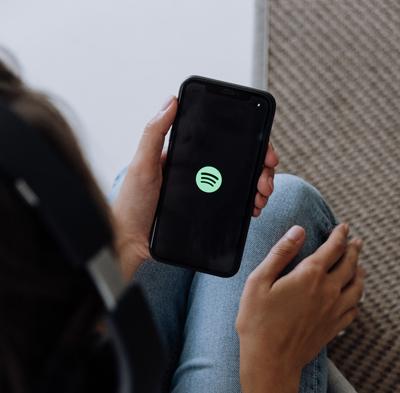 Modern business of any niche is primarily a struggle for the attention of the consumer. The information space is oversaturated with a variety of offers, and according to research, a consumer gives about 3 seconds of attention to an average offer.
Modern business of any niche is primarily a struggle for the attention of the consumer. The information space is oversaturated with a variety of offers, and according to research, a consumer gives about 3 seconds of attention to an average offer.
The same applies to the consumption of audio content. Such a crazy dynamic dictates its own rules, leaving no room for sentimentality. Marketing and promotion come to the fore in this game. Likes, views, and subscriptions today are the currency.
There is even an opinion that the quality of content is losing its value. However, working with real and undisguised talent in such cases is even easier. Quality content on its own wins out against the crowd, and smart, thoughtful marketing brings it to the top and does it in an organic way.
When it comes to music distribution, the possibilities are endless. Many of them do not even require investments and are absolutely free. Having formed their fan base, artists no longer need to bother selling physical media. Today, the music store is in everyone’s pocket: Spotify and all sorts of streaming services and platforms, online stores, social media, etc., almost all of which allow artists to collect royalties and monetize their work in all sorts of ways.
And yes, there are no more excuses. Today, anyone can get on any streaming service like Spotify. Of course, dealing with such a variety on your own is very difficult, and moreover, you are unlikely to be able to independently upload your product to Spotify and most platforms. That’s why there are music distribution services that do it for you.
These music distribution services actually do everything you may need, from providing simple marketing services to copyright protection and royalty collection. All you need is to choose one of the music distribution services and upload your music.
Now, let’s take a quick overview of the most common questions regarding digital music distribution, and we’ll look at them in more detail later.
 What are music distribution companies?
What are music distribution companies?
Music distribution companies are companies that provide intermediary services between artists or labels and music stores. In other words, independent artists or labels give distribution companies the right to sell their music.
How much does a music distributor cost?
A music distributor can charge a fixed price directly for uploading a track or an album, charge a subscription fee for unlimited releases, or take a percentage of royalties when music is sold.
Which music distribution service pays the most?
DistroKid and TuneCore offer the most favorable terms as an annual subscription with no limit on the number of uploaded tracks, while 100% of your royalties remain with you. ONErpm offers unlimited uploads for free distribution but charges 15% of your royalties.
What is the most popular music distribution?
The Most popular music distribution companies are DistroKid, CD Baby, TuneCore, LANDR, Ditto Music, Horus Music, Awal, ONErpm, and Spinnup.
Which distribution company is the best for music?
Considering the highly competitive environment among distribution services, the quantity and quality of the services they provide are approximately the same. One of the factors on which you can base your choice is the artist’s preferences. Among them are CD Baby, TuneCore, DistroKid, and ONErpm.
Who is the biggest distributor for music?
Today, the largest distributors are DistroKid and LANDR. DistroKid has approximately 950,000 artists listed, LANDR has over 1,300,000 artists and labels. The third place belongs to CD Baby with 800,000 artists.
What is the best online music distribution company?
By the number of artists who prefer one or another distribution service, as well as taking into account the age of the companies, DistroKid, CD Baby, TuneCore, and ONErpm can be identified as the best music distribution services.
Why the distribution of your music can fail
That’s why making a living only out of royalties is not a simple task, you’ll need to work hard for it. Despite the wide range of free services provided by music distribution companies, from design and cover art to some marketing solutions, the main task of a music distribution company is just to distribute your music onto a streaming service, for example, Spotify, not to make it popular there.
Make sure your music is of the highest quality
Before getting into the subtleties and nuances of music distribution, and conducting a comparative analysis of music distribution companies, you need to understand the reasons why your music may not sell well (even if you are already on Spotify). You need to do all the necessary preparatory work before actually stepping into the digital distribution process.
In this article, we do not talk much about the quality of the musical material itself, but we’ll just mention that, when releasing a track, you must be sure that the mixing is of high quality, and that the mastering standards for digital music platforms are observed.
Effective marketing is crucial
Once you have finalized your music, the next and most obvious factor is that in order to sell it, you need to have buyers. It makes no sense to choose a distribution service like DistroKid or CD Baby and release a track on Spotify if you don’t have a loyal fan base interested in you as an artist and your music. If you plan to get your music on Spotify, make sure people know your songs.
Therefore, a well-written business model and general strategy, social media marketing, PR, music promotion campaign, advertising, and other promoting work must be done before the release date because getting your music onto major music streaming platforms is, by far, the least problem.
Your task as an artist is to get the most profit from your work. Especially if you are an independent artist, or there is not yet a big record label behind you that would take on the promotion tasks, we recommend hiring specialists in marketing, social media marketing, public relation, etc.
Consider partnership
In the beginning, the marketing work can even be done by one person, maybe a freelancer, of course, the services will not be free. Naturally, such decisions will entail the need to invest certain funds in your project, but the music industry is the same business, and investments, both material and non-material, are also needed here.
In addition, starting the journey, you can look for opportunities to negotiate with a partner, for example, about equity participation, but do not forget to always write down your agreements in order to avoid any controversial situations in the future.
Copyrights headache
 Many artists, especially beginners, are often afraid that as soon as they release their track, someone will immediately appropriate it, use it for his own purposes, the author will not even be put in the credits, and all the fame and monetization will go to that person.
Many artists, especially beginners, are often afraid that as soon as they release their track, someone will immediately appropriate it, use it for his own purposes, the author will not even be put in the credits, and all the fame and monetization will go to that person.
Such fears are quite justified, since you, as an artist, have invested so much time and effort into your music. However, let’s look at things more pragmatically. According to statistics, more than 50,000 songs are uploaded only to Spotify every day. And that’s just Spotify… It’s a huge number, and just this fact makes you think that today it’s not too hard to write a new song, so it’s not so enticing to steal.
Royalties and copyright
Moreover, by uploading a track to any digital music distribution service, you may share royalties, but you always retain a 100% copyright, provided that you do not have any contracts with labels or other structures, and if you did not transfer the rights to someone voluntarily.
Even so, copyright and distribution rights are two different things. By the way, please note that the best music distribution platforms offer to indicate, in addition to the author of the music, also the author of the lyrics, arrangers, producers, musicians, engineers, etc.
Your copyright stays with you
In general, by uploading your recordings to the best music distribution companies, you can be sure that your material is safe.
Get your music on all major platforms: Google Play, Amazon Music, Spotify Apple Music, YouTube, etc. The music distribution company collects your royalties, and even if someone tries to use your music for free, and without permission, they will not be able to monetize it and will receive a copyright complaint.
What is really important is to make sure that the distribution platform you use also covers the Chinese music market, such as Tencent, NetEase, Xiami, and Alibaba for example, and also distributes music on Instagram and TikTok, because some music distributors have such options either not available, or may provide it for a fee.
But even if the music distribution service of your choice does not provide the service you need, you can always choose a non-exclusive contract format, which, if necessary, will allow you to use another music distribution service for additional tasks.
Other ways to ensure copyright
Of course, there are separate publishing organizations for registration and copyright protection, both regional and global, but this topic itself is complex and extensive enough to form another article.
If you still have doubts, here is a free old-school life hack from the era of physical distribution. Once you’ve finished your music, print it on a CD, put it in an envelope, and send it by regular mail to your own address. Thus, you will receive a letter from yourself, but with the date of the postal service affixed. Do not open this letter, just keep it. If you ever have a dispute about the authorship of your music, you can present this letter as evidence.
Want a free test mix of your track?
We get it.
That’s why we’ll do a full hybrid (analog + digital) mix of your song —
for free.
No upfront payment. No risk.
You only pay if you’re blown away. And if you are, we’ll slash 40% off the final price.
Nobody else in mixing and mastering offers this.
Why?
Because most studios say yes to every project. We don’t. We only mix what we’re excited about — so send us your best track. If we like it, we’ll mix it like it’s going to the Grammys.
👉 Just drop your name and email to get started.
Alternative options for distribution
On some freelance sites, like Fiverr, you can find numerous offers that promise to distribute your music directly to Spotify playlists or help you to submit your music to labels. Sometimes it makes sense to turn to a specialist for help. (By the way, if you suddenly decide to take such a step, always pay attention to the rating and reviews of the service provider).
Symphonic
For example, you are interested in a submission-based music distribution company. One of these is Symphonic. This company has certain requirements for music quality and music video quality. They also evaluate the growth potential of the artist. Therefore, getting into this company is quite difficult, and artists often face rejections.
However, if you are approved, you will receive your benefits. The very fact of selection already speaks of the quality of the environment in which you find yourself. So, for example, Symphonic is the major independent music distributor for Latin Music. The company cooperates with Spotify directly and is interested in the music of its artists getting into the playlists. Once on the platform, music is licensed under Symphonic Digital on all major platforms, including YouTube content id.
Symphonic also provides your own listening page and takes 15% of royalties as payment.
While Symphonic will provide an explanation in case of rejection (such as incorrect metadata, or poor audio quality), it’s a good idea to have a professional help you get your claim right in the first place. Also, providers of such services often offer immediately an integrated approach: from cover graphic design, creating a personal landing page for an artist, setting up Facebook ads, and ending with digital distribution on Spotify.
The history and structure of the distribution industry
The music distribution business has been around for centuries. Long before DistroKid and others, and even before the invention of sound recording, publishing companies had performed the function of music distribution, selling sheet music.
Then came the era of physical audio media, which peaked in 2001. During this time, monopoly whales, the so-called major music distributors, have formed.
Today, in the digital age, there are new opportunities, both for artists and for various types of distribution companies. As we mentioned earlier, distribution companies, as intermediaries, perform two main functions. The first is the delivery of music to Spotify and dozens of other platforms, the second is the collection of royalties.
These functions of distribution companies are beneficial both to streaming platforms and to artists. On the one hand, streaming platforms make royalty payments well-organized. On the other hand, artists don’t have to upload their music to dozens of different platforms on their own.
And in fact, most streaming platforms do not work directly with artists. To be fair, Spotify, for example, experimented with allowing artists to upload their own music at one time but soon closed that possibility. Artists can create their own page and upload music to it on their own, perhaps only on free platforms like Soundcloud and Bandcamp. In this case, it is appropriate to compare artists with retailers, and music distribution companies with wholesalers. While some top music distribution companies work directly with over 600 platforms, the benefits are clear.
The types of music distributors
All music distributors can be divided into 5 types:
1. Major Distributors:
- Alternative Distribution Alliance,
- Caroline International,
- Ingrooves,
- The Orchard
2. Independent Distributors:
- Absolute
- Symphonic Distribution
- Believe Digital music distribution
- Songtradr
- Ditto Plus
- ReverbNation
- Idol
- Redeye Worldwide
- Octiive
- Record Union
3. White-label Distribution services:
- Consolidated Independent
- SonoSuite
- FUGA
4. Open music distribution services:
- Boost Collective
- CD Baby
- DistroKid
- United Masters
- TuneCore
- Spinnup
- Ditto Music
- ONErpm
- Horus Music
- Music Gateway
- iMusician Digital
- Level Music
- LANDR
5. Semi-label music distributors:
- Amuse
- AWAL
In fact, there is simply no unambiguous definition of which type, or which particular company is better or worse. Each case and each artist are unique, and the approach may be very different.
However, understanding the music industry as a whole, and each of its individual components, significantly increases the chances of an artist to succeed. Especially, if we talk about independent artists or those who do not have influential labels and huge budgets behind their backs. Therefore, now we will consider in detail each of the types of music distribution companies.
Major distributors
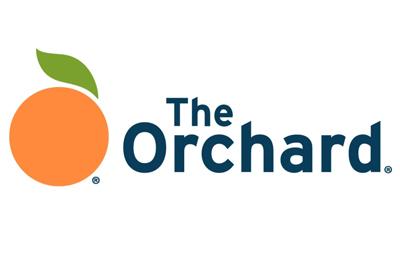 It so happened historically that more than 60% of the world’s music market belongs to three companies. These are Warner, Universal, and Sony. These companies, which are also the biggest labels, dominate the entire entertainment industry, not just music. The huge number of artists cooperating with these companies allows them to dictate terms of work with streaming platforms and obtain the best conditions.
It so happened historically that more than 60% of the world’s music market belongs to three companies. These are Warner, Universal, and Sony. These companies, which are also the biggest labels, dominate the entire entertainment industry, not just music. The huge number of artists cooperating with these companies allows them to dictate terms of work with streaming platforms and obtain the best conditions.
The media influence of these market makers is also incomparable to that of independent labels, so major label artists are always in a better position from the very beginning.
Alternative Distribution Alliance, Caroline International, Ingrooves, and The Orchard mentioned in the list, are basically the departments of Sony, Warner, and Universal. As we said at the beginning of this article, being signed to a major label is already a big achievement for an artist, but there is a downside to these contracts and a price to pay for success. Therefore, there are alternative ways, such as independent distributors.
Independent digital distribution
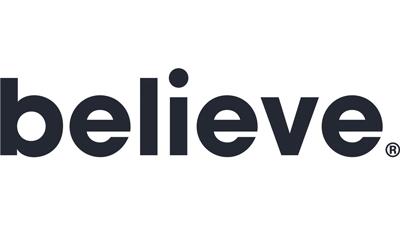 Companies that at one time left the wing of the major labels, and those that managed to maintain their independence are considered “independent labels”, or in our case, independent music distributors.
Companies that at one time left the wing of the major labels, and those that managed to maintain their independence are considered “independent labels”, or in our case, independent music distributors.
Despite the fact that there is a tendency for the majors to take over such players, independent distributors still exist, albeit insignificant, but still competing with market makers.
The principle of cooperation with artists from independent labels is also shared, and some companies can take 50% and over of revenues and royalties. But unlike the majors, there is much more freedom and flexibility in terms of general policy, marketing strategy, etc. We have already talked about this with the example of Symphonics, but the essence remains the same.
Working with majors or with independent companies, the artist belongs to them much or less. The point is that the artist is in a situation where he needs to prove his suitability and prospects to the label and distributor, and as a result, somehow agree with the conditions and policies of the company.
On the other hand, when signing an artist, the company invests money in him, and, first of all, considers him as a business project, therefore, it is quite logical and fair that the artist has to comply with the agreements and fulfill the assigned tasks.
Certainly, the major label format has its advantages and disadvantages. Imagine that you are a chef in a restaurant, it can be a small diner or an exclusive, expensive place. You earn good money and have a leading role, but eventually, you may still want to open your own “independent” restaurant. If you leave, then most likely the restaurant will continue working and will grow a new star chef.
Of course, getting into a company that knows for sure, knows how, and which has successfully done its job more than once is practically a guarantee of results for an artist. However, this is a business, and history knows many cases when even proven strategies failed, while non-standard solutions, an individual approach and vision turned into an incredible success.
 White-label distributors
White-label distributors
Independent labels can also be large and powerful enough to deal directly with music stores and streaming services and essentially act as music distributors themselves. In this case, it is beneficial for the company to have its own department that will deal with digital distribution issues. Often such functions are performed by subsidiaries or contractors. As a rule, their tasks include mainly technical support of processes, work with data, etc.
Open music distributors
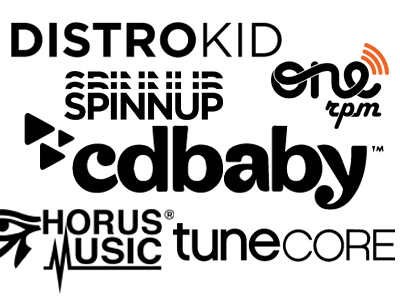 Perhaps the most interesting category for a wide range of artists. Here you will find brands that you have probably heard of more than once: TuneCore, DistroKid, CD Baby, and so on.
Perhaps the most interesting category for a wide range of artists. Here you will find brands that you have probably heard of more than once: TuneCore, DistroKid, CD Baby, and so on.
These are promoted, widely advertised services with a profound marketing approach that lies on the surface, which means that they are available to almost any artist. The idea is that today literally anyone can deliver their music to a streaming service like Spotify, Apple Music, Amazon, Google play, etc.
It’s simple enough: set up a home studio, create music by yourself or use online services to co-produce or search for session musicians, mixing and mastering, and through an affordable distributor, you are placed all over the world.
All this, including marketing, can be done from the comfort of your bedroom. This is the philosophy of the digital age and the mass music industry. It is very convenient and attractive, and most importantly, you do belong to yourself and do not depend on anyone else.
The basic service that open distributors provide is, of course, the placement of your music on all kinds of streaming services, including Spotify, which is already enough for most artists. But the best music distribution companies in this category also offer a wide range of additional services: customer support, playlist pitching, publishing services, physical distribution services, and so on.
The payment system for these music distributors is usually a one-time fee per song or per album, an annual subscription with free and unlimited uploads, or a percentage of royalties (although in most cases, artists will keep 100% of their royalties).
At first glance, the advantages of such companies are obvious, but the fundamental difference between majors, independent distributors, and open distributors lies precisely in the closeness of the former and the availability of the latter.
We’ve already mentioned how much music gets on Spotify every day, and the vast majority of it comes from music distributors like CD Baby, TuneCore, DistroKid, etc. And even so, majors take incomparably more royalties than “open to all” music distribution companies.
Since, in the case of majors and independents, artists themselves knock on their doorsteps, the business model of open music distributors involves attracting artists, or rather, their clients. Thus, the general majority of artists use open-type music distribution services, but the media significance of any of the artists of the big labels is incomparably higher. It follows from this that open distributors, such as the justly promoted CD Baby, DistroKid, TuneCore, LANDR, etc., simply will not physically be able to provide services of the same level as the majors do.
By and large, this applies to production and marketing, and distribution. By the way, TuneCore is a subsidiary of Believe Digital, and Spinnup is owned by Universal Music. Thus, we understand why only a few stand at the pinnacle of success while the majority use publicly available opportunities.
In fairness, it should be noted that this has always been the case in everything, however, with the advent of open digital music distribution services, literally, everyone has a chance to succeed.
So many successful artists started their journey on CD Baby, and some stay with them to this day. Among them are Ingrid Michaelson, Twenty One Pilots, Gravity Noir, Grammy Award-winning artist Janis Ian and many others. Artists who have collaborated with TuneCore include Nine Inch Nails, Drake, Ziggy Marley, Keith Richards, Jay-Z, Cheap Trick, Moby, and Public Enemy. And at one time, independent artist Jack & Jack soared to number one on the iTunes chart using the DistroKid music distribution platform.
Semi-label music distributors
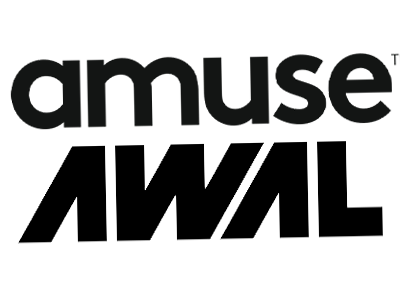 Another type of music distribution service combines the previous types. The current trends in the industry are such that labels are gradually moving away from their primary function – sound recording, and are increasingly concentrating on music distribution.
Another type of music distribution service combines the previous types. The current trends in the industry are such that labels are gradually moving away from their primary function – sound recording, and are increasingly concentrating on music distribution.
The number of independent artists is growing, the ability to record quality music without resorting to the same labels is also increasing, and as a result, competition among distribution services is also growing. Services like AMUSE and AWAL offer a hybrid option and a fairly innovative approach to business.
Just like open music distribution companies, semi-label distributors help unlabeled artists get their music to DSPs. As soon as the contract is concluded, the data received from DSPs go directly to a special department of semi-label companies. In this way, they track the progress of their artists, and in case one of them shows promise, they can offer to sign an extended contract, similar to the one signed by the artist and the label. This may include full-fledged partnerships, investments in marketing and advertising, production, and so on – everything that a record label is generally understood to do.
Of course, such a division by type is very arbitrary, and further from the article, you will find what novelty solutions are offered by open music distribution platforms, but as you can see, the digital distribution industry is much deeper than it might seem at first glance, and artists are given a lot more options for development than just the well-known CD Baby, TuneCore, DistroKid, etc. Finding a way to distribute music to a streaming service like Spotify or Amazon music is not a problem if you have the will and clear vision. The only question is how to do it in the most optimal way, given your situation and your capabilities.
What do music distribution companies offer?
Next, we will go through the list of the most popular digital music distribution services such as CD Baby, LANDR, ONErpm, TuneCore, DistroKid, and others, and take a closer look at the advantages of each company. In this way, you can apply this information to your specific case and independently determine the most suitable solution and service to distribute your music in the most efficient way.
CD Baby
 CD Baby is one of the first representatives in the open distribution market and, being established in 1998, is probably the oldest of them. CD Baby is widely known for the fact that in addition to digital distribution, it can also print music on CD or even vinyl.
CD Baby is one of the first representatives in the open distribution market and, being established in 1998, is probably the oldest of them. CD Baby is widely known for the fact that in addition to digital distribution, it can also print music on CD or even vinyl.
The company offers distribution to all possible streaming companies from Spotify to the Chinese market, as well as Tik Tok and Instagram. CD Baby charges $9.95 for a single track and $29 for an album, and also takes a 9% commission of royalties. This is a good option for artists who do not release much music a year.
The delivery of music to streaming companies including Spotify takes 1-2 days on average, and this is important for planning your release date.
Many artists want to be able to license cover songs, and it’s worth saying that recently CD Baby has canceled this service. In this case, it is appropriate to look for another music distribution service. However, releasing covers is still possible.
TuneCore
 Just like CD Baby, TuneCore is one of the oldest and most trusted music distribution services in the world. TuneCore also offers direct distribution to all streaming companies, but unlike CD Baby it may take a few days longer to get your music on Spotify and Apple music. It usually takes around five days.
Just like CD Baby, TuneCore is one of the oldest and most trusted music distribution services in the world. TuneCore also offers direct distribution to all streaming companies, but unlike CD Baby it may take a few days longer to get your music on Spotify and Apple music. It usually takes around five days.
Using TuneCore, artists keep all 100% of their royalties, but compared to CD Baby, TuneCore has a completely different payment system for their services. TuneCore charges an annual fee of $14.99 for a single artist, $29.99 for a single artist plus additional features, and $49.99 for multiple artists plus features. For this money, you get a year of free distribution and unlimited releases.
TuneCore also offers better credit distribution and lyric distribution than CD Baby, free ISRC and UPC codes, Pandora Radio playlist pitching, and more.
Despite being relatively expensive, TuneCore has proven itself to be one of the best music distribution companies, and is great for independent artists who release music frequently and in large quantities.
DistroKid
 Along with CD Baby and TuneCore, DistroKid is rightly popular with most artists.
Along with CD Baby and TuneCore, DistroKid is rightly popular with most artists.
In terms of payment, DistroKid is more like TuneCore than CD Baby. DistroKid also offers an annual subscription of $19.99, $35.99 or $79.99, depending on the plan chosen, but either way, the customer gets free distribution and unlimited releases for the duration of the subscription.
By the way, it is important to mention one nuance. Using CD Baby services, you get your music on DSPs forever. In the case of DistroKid, for example, if for one reason or another you decide not to renew your subscription, you will have to pay DistroKid an additional $29.99 per song and $49.99 per album to keep them on DSPs.
On the other hand, the fact that DistroKid, like TuneCore, leaves all 100% of royalties to the artist is a significant advantage over CD Baby.
DistroKid also offers music video distribution on Vevo and Apple Music, which neither CD Baby nor TuneCore does. This service is available on DistroKid for a $99 annual subscription.
In general, DistroKid has a simple, convenient, and understandable interface, which makes DistroKid one of the most popular on the market.
LANDR
 LANDR began providing digital distribution services in 2017. Prior to this, the company was known in the industry for its online mastering service.
LANDR began providing digital distribution services in 2017. Prior to this, the company was known in the industry for its online mastering service.
Now, along with CD Baby, TuneCore, and DistroKid, LANDR is at the top of the music distribution companies accessible to everyone and trusted by over 1.3 million artists.
LANDR distributes music to most streaming services like Spotify and Apple Music, TikTok, Amazon, and others, including Chinese companies Tencent, NetEase, and Xiam.
LANDR offers several subscription options from $9 to $89 per year with different variations, but you get unlimited uploads only in the case of the maximum subscription plans. Unlike TuneCore and DistroKid, LANDR takes a percentage of collected royalties.
And while CD Baby has a fixed percentage of this commission, with LANDR everything depends on the chosen subscription plan.
Also, LANDR is one of the few that offer cover song licensing, and it costs $15 per song.
Ditto Music
 Ditto music is known for the fact that Ed Sheeran and Sam Smith once used the company’s digital distribution services. Today it is a “sign for free” music distribution platform, available to everyone and “not for all the money in the world”.
Ditto music is known for the fact that Ed Sheeran and Sam Smith once used the company’s digital distribution services. Today it is a “sign for free” music distribution platform, available to everyone and “not for all the money in the world”.
The company will distribute your music to the same streaming companies to which TuneCore and DistroKid do.
Ditto offers several annual subscription plans for free music distribution and unlimited uploads.
Depending on the number of artists, this is $19, $29, or $69.
Recently, a number of complaints can be found on the net, mainly about Ditto’s customer support service and some hidden fees. But in general, Ditto music definitely deserves its place, and in terms of functionality, it is not much inferior to TuneCore, CD Baby, and DistroKid.
AWAL
 AWAL is an acronym for “Artists Without A Label”. As we wrote above, this is one of the “semi-label” services, and to get there, you first need to submit your music, and if it is approved, then you can enjoy the benefits of the company.
AWAL is an acronym for “Artists Without A Label”. As we wrote above, this is one of the “semi-label” services, and to get there, you first need to submit your music, and if it is approved, then you can enjoy the benefits of the company.
AWAL has a special department that really listens to the material received, and these are real people, not software. Submission-type companies are certainly interested in the success of their “wards”, this is evidenced by a fairly high commission percentage (15%) of royalties, which they hold.
This means you won’t have to pay any subscriptions or fixed prices for an album or single. And of course, you get at least the same digital distribution opportunities that CD Baby, TuneCore, and DistroKid have, plus a top music distributor offering a win-win relationship with his artists.
If the artists and their music show good results, the company will be ready to provide them with all kinds of assistance, up to the financing of marketing and advertising companies.
However, this fact alone is far from a guarantee of success. While working with AWAL is like working with a label, or at least that’s what the company’s idea suggests, it doesn’t mean you can just let things go. Famous artists such as Moby, Deadmau5, FINNEAS, and others use AWAL music distribution services.
Horus Music
 Another “opened to all” type top music distribution company, Horus music, was established in 2006, which makes it one of the first digital distribution services with an excellent reputation.
Another “opened to all” type top music distribution company, Horus music, was established in 2006, which makes it one of the first digital distribution services with an excellent reputation.
Just like TuneCore and DistroKid, Horus Music leaves you 100% of your royalties by offering a year of free distribution and unlimited uploads for a subscription that starts at £20.
Music Distribution is provided to all major streaming services, including Spotify, Apple Music, TikTok, Instagram, Amazon music, and hundreds of others. Separately it should be noted that the company is especially committed to music distribution to the Asian market.
Horus music provides additional services in the distribution of music videos to Vevo and Apple Music. Credit distribution includes songwriters, musicians, producers, PRO affiliation, publishers, engineers, and featured artists. The company provides free UPC, and free ISRC codes, Beatport distribution for Dance music, and of course, the repeatedly praised customer support service.
Another notable feature is that neither CD Baby nor TuneCore nor DistroKid has is that Horus Music can act as a label for artists. In this case, instead of a paid subscription, Horus will distribute music for 20% of the royalties. This is another confirmation of the trend in which open music distribution is gradually combining the functions of labels.
Spinnup
 Another open music distribution company to look out for is Spinnup.
Another open music distribution company to look out for is Spinnup.
The company belongs to the Universal music group, and this already says a lot about distribution capacities. So, in addition, you get the potential to attract the attention of one of the three biggest labels in the world.
As with TuneCore and DistroKid, you get 100 of your royalties. Payment here is per uploaded track or per album. Distribution is available on all streaming services like Spotify, TikTok, Instagram, and Beatport as well as on the Chinese market, but the company focuses mainly on the European audience.
The relative disadvantages of Spinnup include no YouTube monetization, no music video distribution, and no credits distribution.
ONErpm
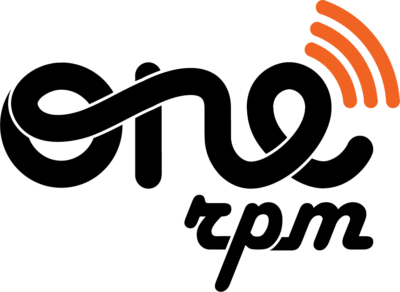 One of the music distribution platforms, with over 6 million tracks released. The company takes 15% of the royalties and that’s it. Next, you get free unlimited uploads, and no variations on the theme of additional payment per track or per album, as is the case with CD Baby, etc.
One of the music distribution platforms, with over 6 million tracks released. The company takes 15% of the royalties and that’s it. Next, you get free unlimited uploads, and no variations on the theme of additional payment per track or per album, as is the case with CD Baby, etc.
ONErpm is especially careful when working with YouTube monetization, one might say this is its strong point. Artists who focus on YouTube should pay attention to this detail. Also, both distribution and licensing of cover songs are available to the company’s customers.
In general, using this digital distribution service, the client gets all benefits that he or she would get using CD Baby, TuneCore, or DistroKid, plus transparent distribution reports, no hidden fees, and high-quality customer support service.
Moreover, If your digital music distribution goes well, ONErpm can also offer you label services, and invest in marketing, promotions, and more. In the list of best music distribution platforms, ONErpm definitely takes one of the first places in all respects.
United Masters
 United Masters is another digital distribution service that is open to everyone and offers support to up-and-coming artists.
United Masters is another digital distribution service that is open to everyone and offers support to up-and-coming artists.
As you can see, more and more often, companies are looking toward progressive trends. This is a kind of open selection, beneficial to all market participants. Moreover, the United Masters in every possible way encourages the initiative of artists and holds various kinds of creative competitions to help talented artists show up.
Thus, in addition to the standard distribution package to all streaming companies like Spotify, Apple Music, and the Chinese market, prime artists can get additional growth points, including sync licensing with NBA, NFL, and many others.
An important note here is that the United Masters are primarily focused on working with Hip Hop artists.
According to the format of cooperation, the United Masters has two options. The first one, as with TuneCore and DistroKid, is a $59 annual subscription plan. By choosing this option, you get a year for unlimited uploads, while keeping 100% of your royalties. The second option is when the distribution service takes 10% of royalties and that’s it. In this case, you also get free unlimited releases.
Songtradr
 Songtradr started as a distribution service in 2018. Prior to this, the company was known for providing a sync licensing service. Thus, this is an important feature of this distribution service.
Songtradr started as a distribution service in 2018. Prior to this, the company was known for providing a sync licensing service. Thus, this is an important feature of this distribution service.
Despite the fact that we categorized Songtradr as “independent”, the company’s service is open to everyone. The company was founded by musicians, so they understand exactly what the client needs.
By all characteristics, the service does not lag behind its competitors: DistroKid, ONErpm, LANDR, etc. Distribution is provided on Spotify, TikTock Instagram, Beatport, and more. The company offers two pricing options. Either a free service for 10% of royalties or an annual subscription starting from $20 per year.
In its relatively short lifespan, the company already has over half a million artists on its roster. This indicates a high degree of efficiency and quality of the service provided.
Amuse
 First and foremost, Amuse is a label. “A distribution service open to all” here means more of a selective way to identify rising talents in order to sign a contract with them in the future. We have already said more than once that this is an extremely convenient and beneficial strategy for both sides.
First and foremost, Amuse is a label. “A distribution service open to all” here means more of a selective way to identify rising talents in order to sign a contract with them in the future. We have already said more than once that this is an extremely convenient and beneficial strategy for both sides.
In a broad sense, Amuse is an app service, both free and pro format. Of course, the full functionality is revealed just for pro users. Not much is not enough, the cost of a pro subscription is $60. For this money, the client gets access to all the same features that are available for all top music distribution companies like TuneCore, LANDR, DistroKid, etc.
However, it is worth considering that Amuse does not distribute to the Chinese market. The income from royalties remains with the author in full, but if a contract is offered and signed, the income can be divided up to 50/50.
Summarizing the facts
Now that we have taken a closer look at the main types of distribution services, and the most important players in the industry, you can draw some conclusions and come up with your own strategy on how to distribute your music in the most effective way.
However, you probably noticed that almost every distribution service strives to follow the trends, and offers plus or minus the same set of distribution tools, terms, and conditions. By and large, it doesn’t matter if it’s DistroKid, Spinnup, ONErpm, or whatever, one way or another, you will be able to get your music on Spotify, and on all major streaming services.
Payment terms can also be reduced to three main methods: an annual subscription with free unlimited releases, a one-time payment for uploading a single track or an album, or a percentage of royalties. Some distribution service providers offer combination options, such as a subscription plus a percentage of royalties, or a one-time payment and a part of royalties.
Prices certainly vary, but in general, they are in the same range. Even the additional choice and quality of marketing tools offered to artists will generally be about the same. The exception is perhaps closed or semi-closed label-type companies, as their approach to marketing solutions is no doubt on another level. But this is the case if they sign a contract with an author or a performer.
Given such a variety, but at the same time similarity of features, making a deliberate and correct choice may not be easy.
How to choose the best music distribution company?
And so, to help you make an informed choice, and make the distribution process itself as smooth and comfortable as possible, we recommend that you go through some common issues on your own and form your own strategy. Because what works for one person may not be the best for another.
Are you going to do it independently?
Perhaps this is the most important and difficult question since it is connected with self-identification. Do you think that you are already ready enough to interest major labels with your work, or would you prefer to do everything gradually and grow on your own?
It is quite possible that already at this stage it is worth submitting your music to a label. After all, the submitting process itself is free, so you’re definitely not losing anything.
On the other hand, “The road is taken by walking”, and instead of sitting and waiting, you can be active and do marketing and distribution on your own.
Accurately define the genre
As we mentioned earlier, to one degree or another, one or another distribution service focuses on or even specializes in a particular genre, such as Hip Hop, Latin, or others. This is important in terms of distribution geography, playlist submission, etc. In the end, being in a circle of like-minded people always remains an advantage.
Distribution geography
In fact, today, getting on any digital music streaming service like Spotify, is not a big problem. However, understanding where exactly your audience is located, or where it can potentially expand, will greatly facilitate the task.
Also, it is worth considering the language in which your music is performed. It is quite obvious that if your language is, for example, Spanish, then before talking about world domination, it would be logical to start focusing on the Latin American market first.
This also relates to marketing and promotion campaigns for a given region. The same applies to distribution in the Asian region. This market is certainly extremely promising, including for Western musicians, and therefore, if you decide to expand your audience there, then you should definitely pay attention to those companies that specialize in distribution on streaming companies in Asian countries.
Planning your releases
 Each author has his own natural creative rhythm. Someone releases a track a day, and someone polishes his album for years. This factor comes into play not only when we choose between a subscription with a year for unlimited releases and a one-time fee, but also when we shape the marketing approach and promotion strategy.
Each author has his own natural creative rhythm. Someone releases a track a day, and someone polishes his album for years. This factor comes into play not only when we choose between a subscription with a year for unlimited releases and a one-time fee, but also when we shape the marketing approach and promotion strategy.
Achieving results in quantity or quality, or both at the same time are completely different things. On the one hand, it may seem that the more you produce, the more likely it is that one of your songs will hit the charts, on the other hand, the art of music is inherently unpredictable. There are so many examples of so-called “one-song” artists.
In any case, the natural creativity that is pertaining to you is likely to be the best. But, of course, first of all, understanding your production capacity is the most obvious way to save money, and choose between a subscription-type service with unlimited releases, such as DistroKid, for example, and a distribution service that takes a one-time flat fee.
Specific marketing tasks
If distribution on Spotify can be considered the default task today, then the use of other streaming tools, TikTok and Instagram distribution, as well as everything related to the monetization of YouTube content, and royalties collection from free platforms like Soundcloud can be defined as the main modern digital music distribution trends. Therefore, it is very important to determine in advance whether the distribution service you have chosen provides such opportunities in principle, whether they are free, and if not, then on what terms the cooperation is built.
Your marketing strategy may also include decisions such as releasing CD or vinyl, for example, or using covers to promote your original music, in which case the choice of service will already become clear.
Royalty-free music distribution
We have talked a lot about digital music distribution in its classical and most common sense. That is when the author is faced with the goal of delivering his or her song to Spotify and any other streaming service, and doing it most efficiently in order to have a decent income from royalties.
But what if you are the author of instrumental music, music for films, advertising, or games? In a word, if your creativity has a narrow focus and specificity, and is intended for use inside third-party content?
The creator of such content, be it an amateur video maker looking for a suitable track for his wedding video, or a professional director (although in the latter case, the music is created on purpose in most cases) cannot just download the track he likes from Spotify and use it in his content. And even then, he would have to buy a license to use the music. Therefore, the so-called royalty-free platforms such as Pond5, Envato Market, and many others have gained wide popularity.
In fact, these are places where every interested author and composer can sell all sorts of licenses for his music. At the same time, he agrees that he does not receive royalties. In most cases, the author sets his own price, both for inclusive and for exclusive licenses. In fact, royalty-free distribution platforms are the same marketplaces where the author, most often, places his product for free, and the buyer finds the product he is interested in by query and keywords.
The use of such platforms is usually free, without subscriptions and one-time fees, however, they take a certain commission from each sale. The commission percentage varies from service to service. The author has the right to unlimited releases, however, each uploaded track can be accepted or rejected depending on the requirements of a particular service.
Conclusion
As you, for sure, could be convinced by reading this article, the very definition of the best music distribution service can hardly be called correct and fair, since many subjective factors play a role here to a greater extent.
Functionally, DistroKid is not much different from the same TuneCore, for example. And at the same time, if companies like DistroKid, due to their marketing policy, are more known in the market than, say, ONErpm or AWAL, this does not necessarily mean that they are right for you.
Of course, various forms of payment and attitudes towards royalties are important, however, in addition to the purely monetary issue, there are a lot of factors and parameters that need to be taken into account. We recommend paying special attention to free features, or the so-called free bonuses that companies use for their marketing purposes. Such features can relate to the artist’s marketing, production, promotion, etc.
We don’t imply that everything that is free is usually of low quality, however, as for some specific free processes that are not related to the main function of the company, it is better to give them into the hands of professionals in a particular field.
We hope this article was useful, informative and shed light on the issues of the industry in general and the music distribution market in particular.
By the way, if your track needs professional mixing and mastering, we recommend that you contact majormixing.com. The company’s engineers have vast experience and will prepare your track for distribution on any platform.










